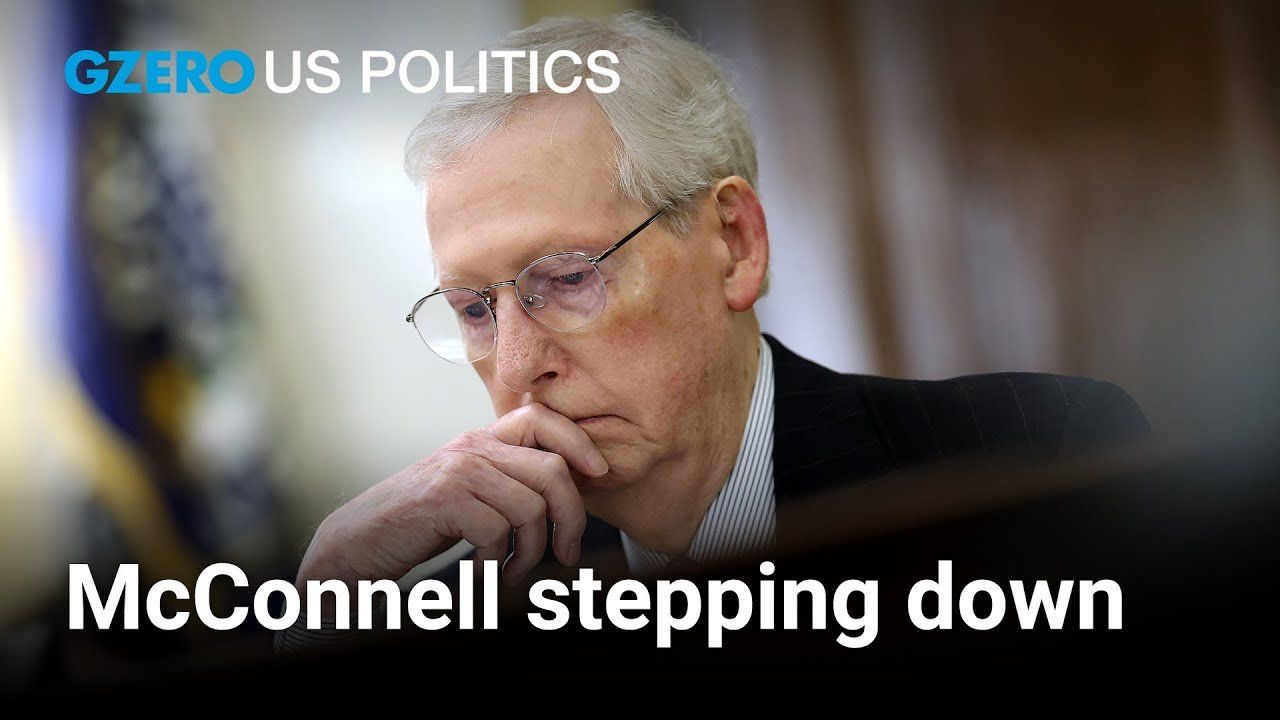US Politics In 60 Seconds
Why Mitch McConnell is stepping down

Mitch McConnell's resignation: What are the implications? | Jon Lieber | US Politics In :60

Jon Lieber, head of Eurasia Group's coverage of political and policy developments in Washington, DC, shares his perspective on US politics.
What are the implications of the retirement of Senate Republican leader Mitch McConnell from his leadership post?
This week Senate Minority leader Mitch McConnell announced his intention to step down as leader of the Republicans after serving longer in that post than anybody else in American history. There are really two implications that I can see.
The first is that McConnell was basically acknowledging the inevitable. It was very unlikely that he would be able to stay on as leader after this Congress anyway. If Donald Trump wins the presidential election, then he almost certainly is going to push McConnell out of the job. And if he didn't win the election, there's a whole generation of Republicans in the Senate who are looking for an opportunity to step up. McConnell, at 82 years old, did not represent that new generation. So the time had come to pass on the torch, and McConnell chose this February to announce it.
The second takeaway is that McConnell is really giving the speech the Democrats are hoping Joe Biden would give. McConnell's only eight months older than President Joe Biden, who's running for a second term right now. And lots of questions have come up recently about Biden's fitness for office because of his advanced age. This is going to be an increasing problem for Biden as more and more Democrats start talking about it. But in the absence of any challenger, it looks like Biden's going to be the nominee and his age will just be a liability they all have to learn to live with.
Ian Bremmer sits down with former US Ambassador to NATO Ivo Daalder to unpack a historic shift in the transatlantic alliance: Europe is preparing to defend itself without its American safety net.
Think you know what's going on around the world? Here's your chance to prove it.
Argentina, Armenia, Belarus, Egypt, Indonesia, Jordan, Pakistan, Paraguay, Vietnam – to name only a few.
A poster featuring Andrew Mountbatten-Windsor, formerly known as Prince Andrew, is installed on a sign leading to the parking area of the Sandringham Estate in Wolferton, as pressure builds on him to give evidence after the U.S. Justice Department released more records tied to the late financier and convicted sex offender Jeffrey Epstein, in Norfolk, Britain, February 5, 2026.
British police arrested former Prince Andrew Mountbatten-Windsor today over allegations that in 2010, when he was a UK trade envoy, he shared confidential government documents with convicted sex offender Jeffrey Epstein.